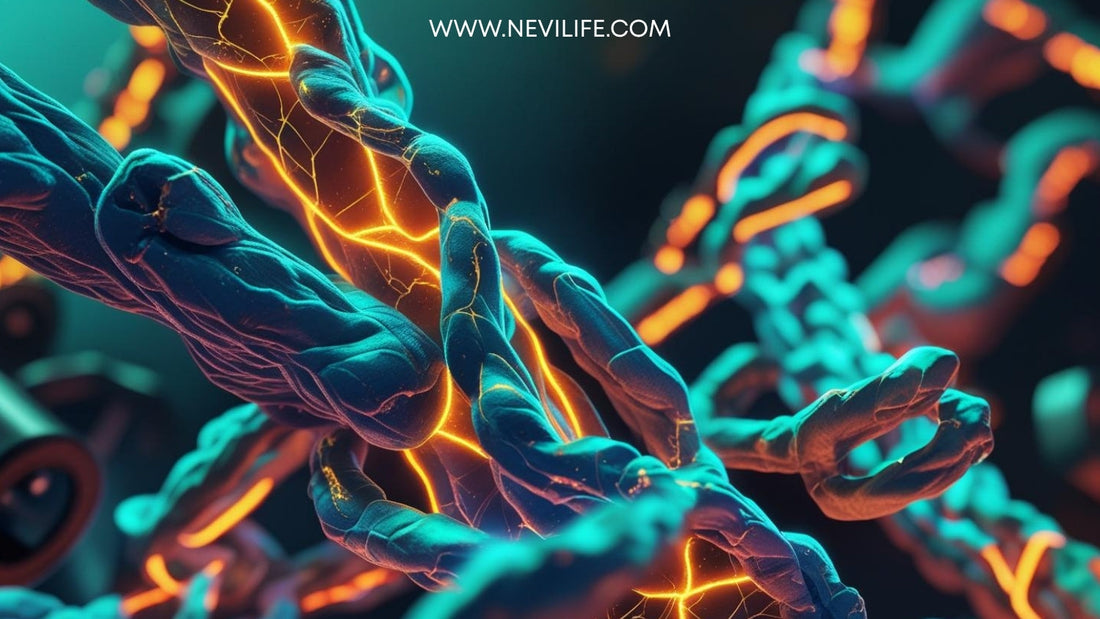
Fuel Your Gains: Why These Rich Protein Foods Are Essential for Muscle Growth
Share
If you're serious about building muscle, recovering faster, and supporting a strong, healthy body, then protein isn't just important – it's absolutely non-negotiable. Often called the "building blocks of life," protein plays a vital role in countless bodily functions, especially when it comes to repairing and growing muscle tissue after exercise.
But what are the best sources of this macronutrient powerhouse? Let's dive into why protein is crucial for your fitness journey and spotlight some of the rich protein foods that should be staples in your diet for muscle gain.
The Muscle-Building Magic of Protein

When you work out, particularly with resistance training, you create microscopic tears in your muscle fibers. Protein provides the amino acids necessary to repair these tears, leading to stronger, larger muscles. Beyond just building, adequate protein intake helps:
-
Muscle Recovery: Speeds up the repair process, reducing soreness and getting you ready for your next session.
-
Satiety: Keeps you feeling full and satisfied, which is beneficial for managing weight and avoiding unhealthy cravings.
-
Metabolism Boost: Protein has a higher thermic effect of food (TEF) compared to fats and carbs, meaning your body burns more calories digesting it.
-
Overall Health: Supports enzyme production, hormone balance, immune function, and healthy hair, skin, and nails.
Your Go-To Guide: Rich Protein Foods for Muscle Gain

Here are some of the top-tier protein sources you should be incorporating into your daily meals, all packed with the amino acids your muscles crave:
-
Chicken (Lean & Versatile): A classic for a reason! Chicken breast is a powerhouse of lean protein, low in fat, and incredibly versatile for various meals. It provides essential amino acids for muscle repair without excess calories.
-
Egg White (Pure Protein Power): While the yolk contains valuable nutrients, egg whites are almost pure protein, making them an excellent choice for a high-protein, low-calorie boost. They're quick, easy, and can be added to countless dishes from scrambles to stir-fries.
-
Tofu (Plant-Based Muscle Builder): For our plant-based fitness enthusiasts, tofu is a complete protein, meaning it contains all nine essential amino acids. It's incredibly adaptable, absorbing flavors beautifully, and can be used in stir-fries, scrambles, or grilled dishes to pack a protein punch.
-
Turkey (Lean & Nutrient-Dense): Similar to chicken, turkey (especially turkey breast) is another fantastic source of lean protein. It's often found in ground form, perfect for healthy burgers, meatballs, or chili, offering a slight flavor variation while delivering top-notch protein.
-
Fish (Omega-3 Rich Protein): Beyond its high protein content, fish like salmon, tuna, and cod offer the added benefit of healthy fats, particularly Omega-3 fatty acids. These are crucial for reducing inflammation, supporting heart health, and aiding in recovery. A delicious way to build muscle and boost overall well-being.
-
Steaks (Red Meat Muscle Fuel): Beef, especially leaner cuts of steak, is a complete protein rich in iron, zinc, and B vitamins, all vital for energy production and muscle function. It also naturally contains creatine, a compound known to enhance strength and muscle mass during exercise.
How Much Protein Do You Need for Muscle Gain?

While individual needs vary based on activity level, body weight, and goals, a common guideline for active individuals aiming for muscle gain is to consume between 1.6 to 2.2 grams of protein per kilogram of body weight per day. For example, a 70kg (approx. 154 lbs) individual might aim for 112-154 grams of protein daily.
Spreading your protein intake throughout the day, including it in every meal and snack, can maximize muscle protein synthesis. Think about combining these rich protein sources with complex carbohydrates and healthy fats for balanced, performance-boosting meals.
Beyond Muscle: The Holistic Benefits of Protein

Remember, protein isn't just for bodybuilders. Adequate protein intake supports:
-
Weight Management: Promotes fullness, reducing overall calorie intake.
-
Bone Health: Contributes to bone density.
-
Hormone & Enzyme Production: Essential for countless bodily processes.
-
Immune System: Helps create antibodies to fight off illness.
By prioritizing these rich protein foods in your diet, you're not just investing in muscle gain; you're fueling a stronger, healthier, and more vibrant you. Make these protein powerhouses a staple in your kitchen and watch your body transform!